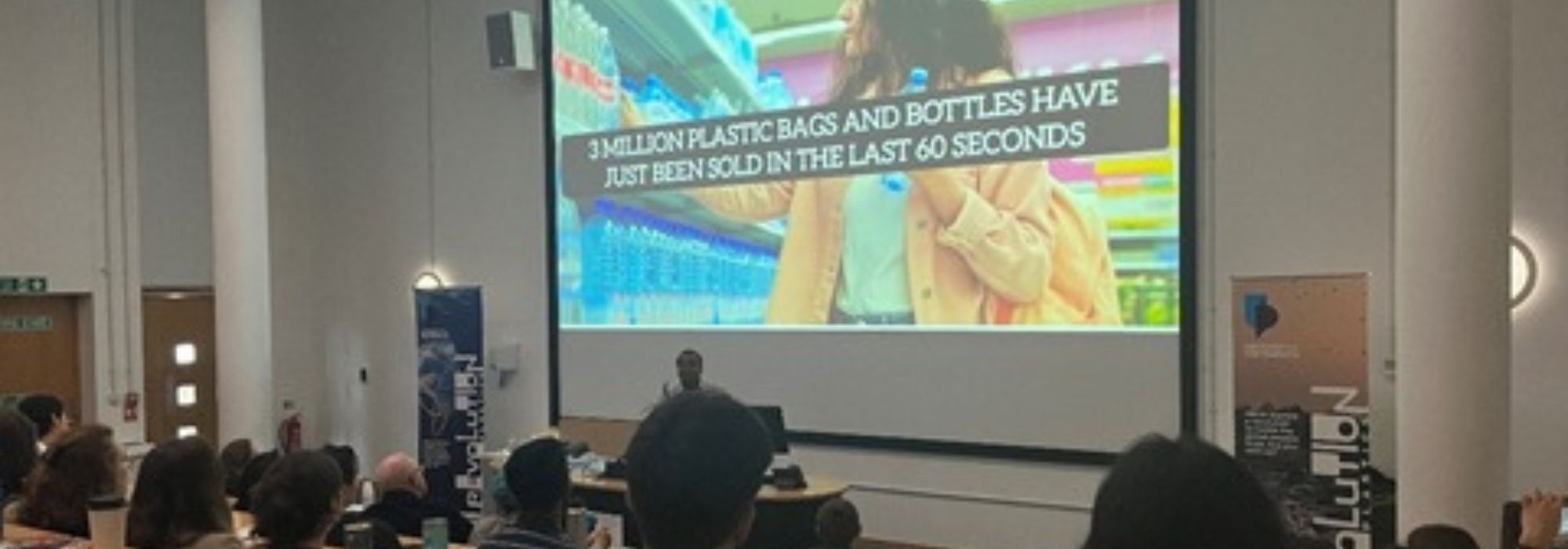PlasticsFuture 2023 Conference – Plastic Free Mersey Post-Event Recap
The Plastic Free Mersey team represented environmental charity Thames21 at the University of Portsmouth PlasticsFuture 2023 conference at the end of June, hosted by the Revolution Plastics team. Revolution Plastics is an interdisciplinary initiative establishing collaborations between researchers, campaigners, businesses, and citizens to change the way plastic is produced, used, and disposed of. The conference developed the discussion around the global problem of plastic pollution, and connected people across nations and disciplines to share research findings, discuss solutions, and create opportunities for future collaboration.
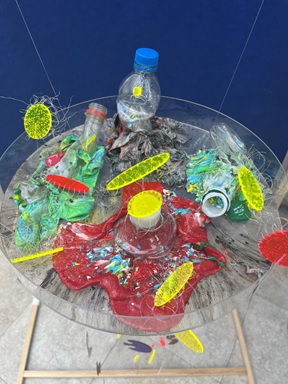
The Thames21 team (Luca, Lucy, and Hannah) engaged in sessions covering the transport and impacts of microplastics, the transition to a sustainable fashion industry, the cultural history of plastics, plastic pollution in the Global South, solutions to challenges through creative methods, and international legislation. It was interesting, and worrying, to hear that only 10% of all plastic ever produced has been recycled, and that 60% of global recycling is currently conducted by waste reclaimers. Speakers and audience included NGO and community representatives from, or working in, countries across the globe, including France, Austria, the USA, Kenya, Indonesia, and Bangladesh. Particularly notable organisations and programmes were the Amal Foundation, the PISCES programme, Break Free from Plastics, Waste Aid, and the International Alliance of Waste Pickers. Leading representatives from these are directly involved in shaping the Global Treaty on Plastics Pollution, where progress is being made towards an agreement for a reduced reliance on single-use plastics, augmented reuse and refill schemes, and a more circular economy.
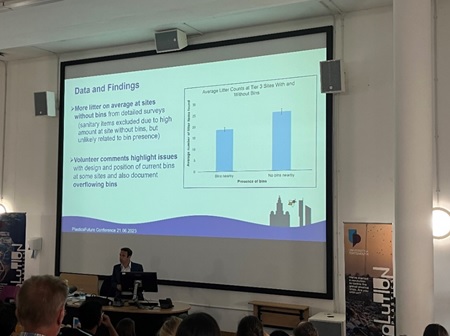
Luca Marazzi, coordinator of the Plastic Free Mersey project, shared findings from the first two years of the cross-sectoral initiative, supported by high profile plastics industry partners, in a session highlighting the importance of community engagement in tackling plastic pollution issues. Volunteer data has helped shed light on the most common item (plastic food packaging constitutes 21% of all litter collected, on average), and has associated an absence of bins, or overflowing bins, with more litter. Recommendations based on findings include support for comprehensive Extended Producer Responsibility and Deposit Return Schemes across the UK. The team also developed a project poster that was presented and displayed alongside over 20 other posters covering a range of projects and studies.
Panel discussions highlighted how novel materials, such as clothing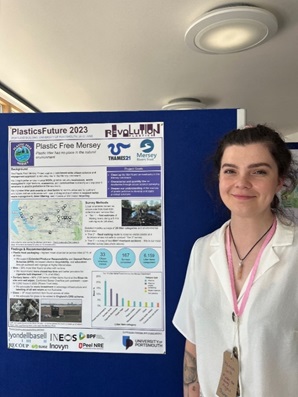 materials that are more durable, and compostable or recyclable, and technological advances can aid positive changes to industry. Discussions also emphasised the importance of systems change, through engagement with local and national political leaders. The use of creative arts methods to encourage behaviour change and empower communities to advocate for systemic and legislative change was also addressed.
materials that are more durable, and compostable or recyclable, and technological advances can aid positive changes to industry. Discussions also emphasised the importance of systems change, through engagement with local and national political leaders. The use of creative arts methods to encourage behaviour change and empower communities to advocate for systemic and legislative change was also addressed.
Creative engagement tools were shared through workshops, where the team used hard-to-recycle plastics to create pom-pom decorations, using inspiration from fashion pieces designed to promote conversations around plastic waste, and where it ends up (80% of the plastic thrown away since the 1950s is now in the natural environment and in landfills).
Another creative workshop involved puppet-making, and conference attendees learned about the importance of puppets to facilitate conversations and educate younger audiences about complex scientific research. The workshop highlighted an example of researchers using puppets to explain how enzymes are being genetically modified to break down plastics.
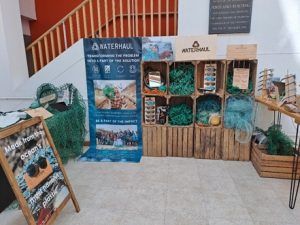
The conference also featured poetry readings by ‘Pens of the Earth’. The inspiring and emotion-driven readings creatively interpreted the plastics crisis and explored the relationships between people and their environments at a very personal level. The unique combination of science, local knowledge, and the arts made this conference an eye-opening event for all who attended, from university students to NGO representatives and businesspeople. The plastic pollution challenge needs to be tackled at local, regional, national, and international levels and Revolution Plastics are creating discussions and projects that create meaningful change. Young-people-led initiatives, particularly in the Global South, should give us hope for a more self-aware and sustainable world.
Staying true to the discussions around single-use plastics and the scale of plastic consumption, the conference organisers focused on reducing impact by providing mugs and glasses to be used throughout the conference and vegan lunches and dinners, as well as encouraging the use of personal reusable water bottles. They also enabled all guests to design their name tags with leftover sections of ribbon and paper tags. Such ideas could be applied to events hosted by Thames21.
The Revolution Plastics team led by Professor Steve Fletcher and Dr Cressida Bowyer planned and hosted a fantastic conference, facilitating fruitful discussions and establishing valuable connections between different organisations committed to reducing plastic pollution around the world.
